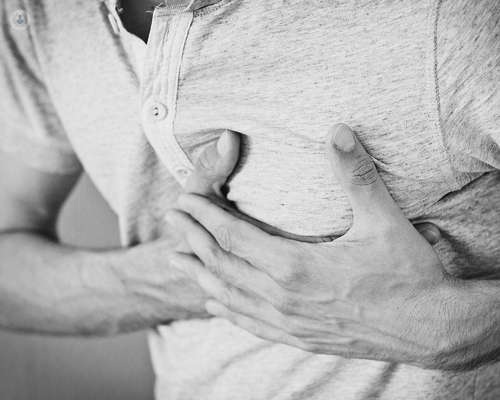

What are they?
Extrasystoles, or premature ventricular contractions (PVCs), are a type of cardiac arrhythmia. They occur whenever a contraction stimulus is sent ahead of time from the sinoatrial node in the heart, which is the normal heartbeat initiator, giving a rather unpleasant sensation of a “skipped heartbeat” or palpitations in the chest.

Prognosis of extrasystoles:
Extrasystoles (PVCs) are not usually dangerous if they are sporadic. Should they become more frequent, you would need to seek preventative treatment. This is because they could evolve into more dangerous arrhythmias in the future.
What are the symptoms?
PVCs are usually asymptomatic, and are diagnosed during exams performed for diagnosing other conditions. When they become more frequent, the most common symptoms include palpitations and an accelerated, skipped or irregular heartbeat, you may also become more sensitive to the changes in your heartbeat. If you also have tachycardia, you may experience dizziness, weakness and breathing problems.
How are they diagnosed?
PVCs are easily diagnosed with an ECG. If it is suspected that you have PVCs, but no conclusive diagnosis can be formulated after an ECG, the doctor may have you wear a Holter monitor for a couple of days, in order to monitor both your resting and active heartbeat. This should give a more complete idea of how your heart is behaving. Under certain circumstances, you may also have to do a cardiac stress test, that is, an ECG while you engage in increasingly intense physical activity. Should the PVCs keep on happening during the test, this could mean that you may be suffering from another condition.
What causes them?
It is not clear yet what causes extrasystoles, especially in otherwise healthy people. The triggers seem to include anxiety, prolonged stress, fatigue or generally feeling unwell. In rarer cases, however, PVCs can be caused by other conditions or problems such as anaemia, hyperthyroidism, hypothyroidism, mineral salts deficiency, hernia or gastroesophageal reflux disease.
How can they be prevented?
It is crucial to find out what may be causing PVCs and act ahead of time to prevent them. First of all, you should avoid stimulating substances, such as coffee, smoking or drinking alcohol. At the same time, you should get started on improving your stress management, and being physically fit. You should not neglect your diet: remember to eat a light and healthy diet.
How are they treated?
It has been demonstrated that exercise can help significantly in reducing the frequency of PVCs. In the most severe cases, you can start taking medications to lower your heartbeat and consequently reducing the number of premature contractions, or you can start taking anti-anxiety medication to help with the stress. Should you also suffer from any cardiac conditions (and based on how severe they may be), you may have to have an artificial pacemaker implanted.
Which doctor should I talk to?
You should see a cardiologist for extrasystoles.
